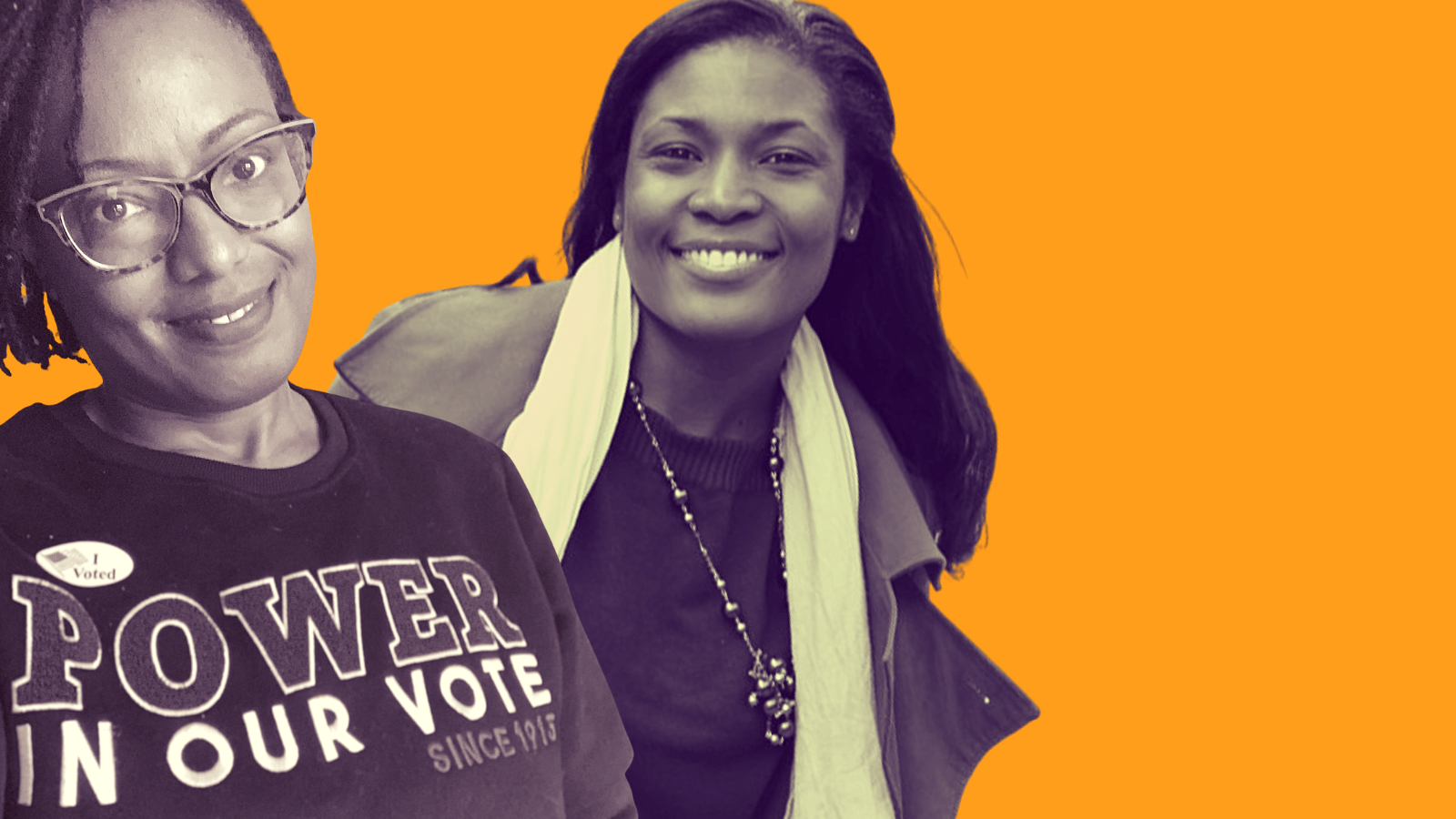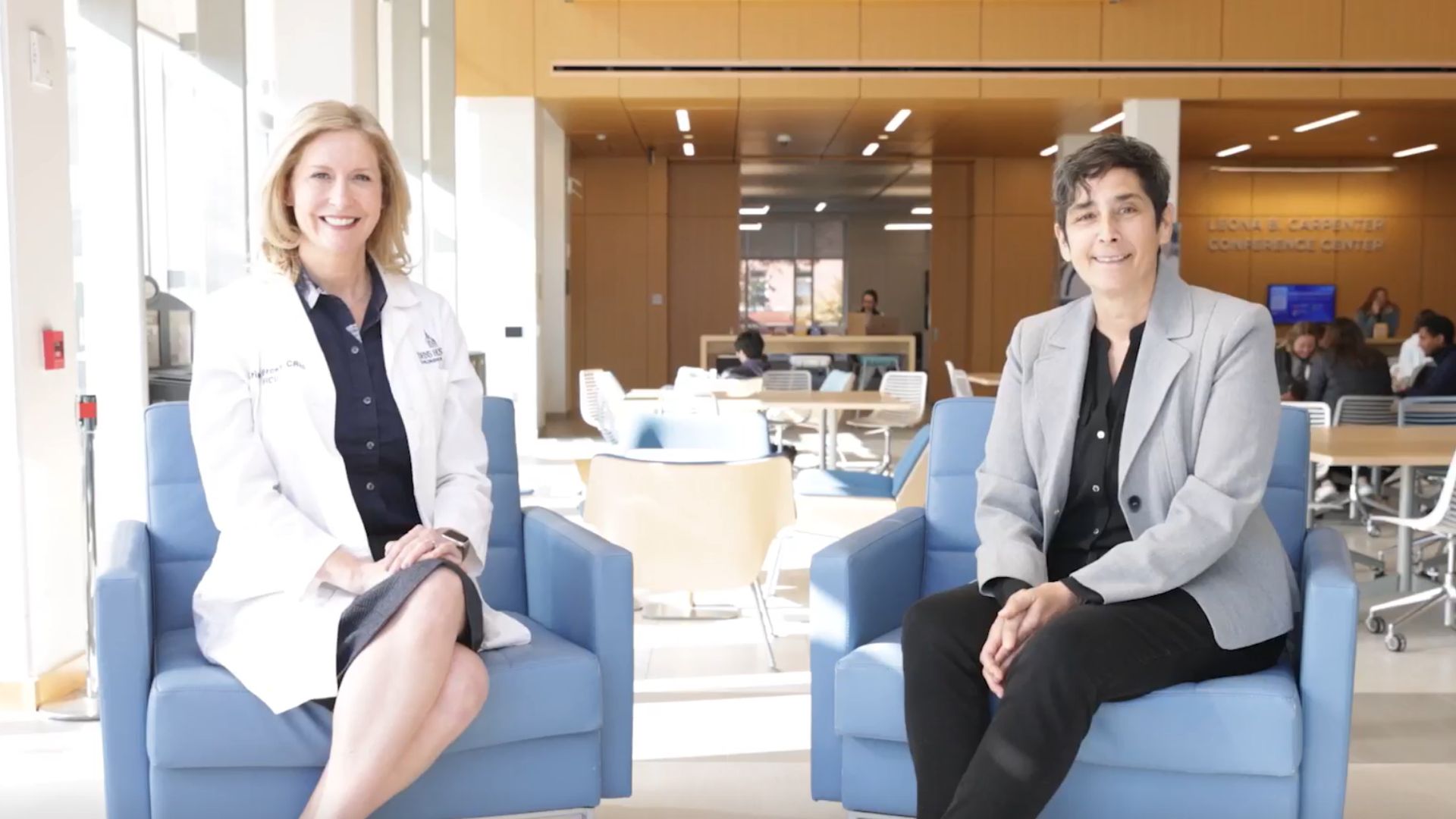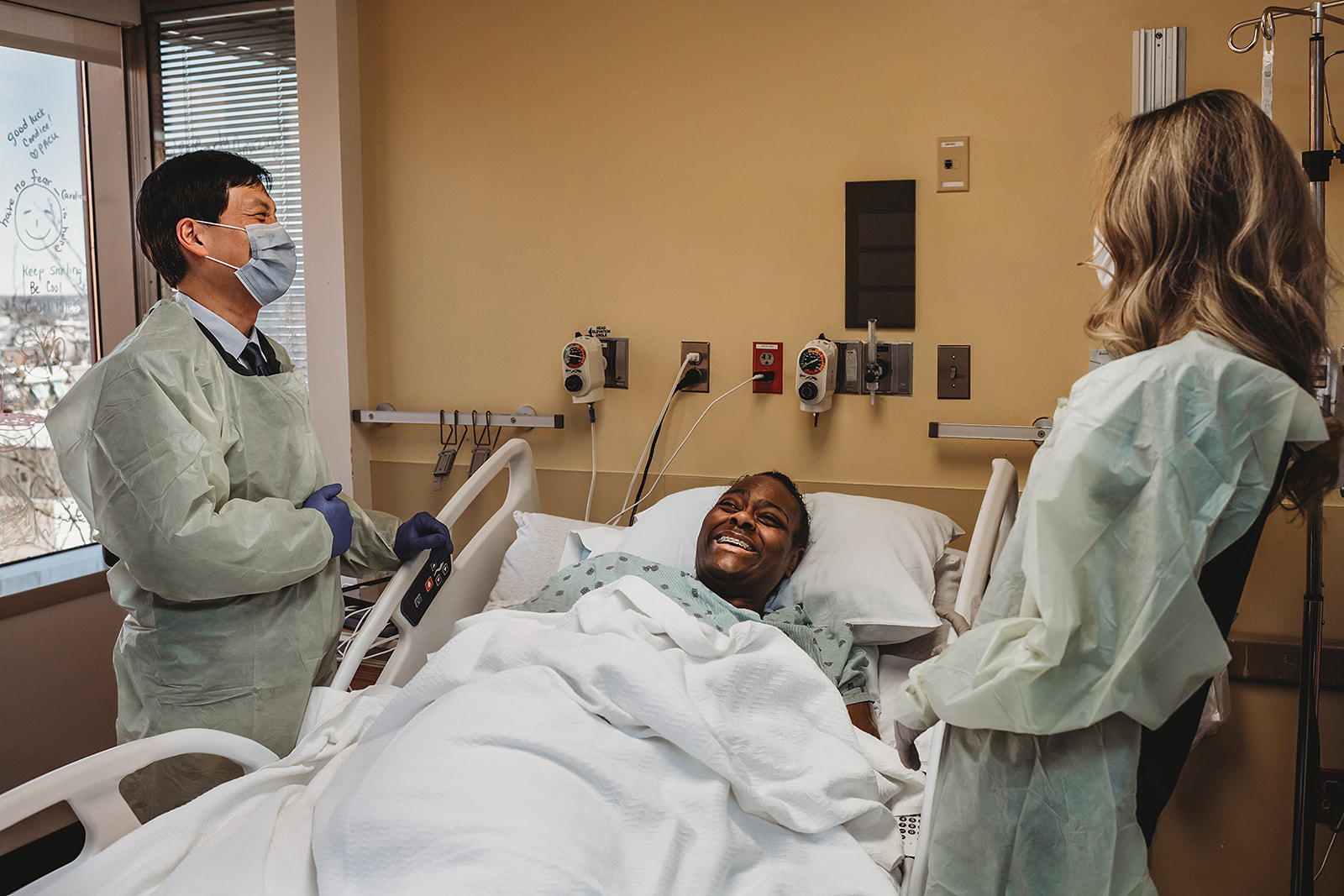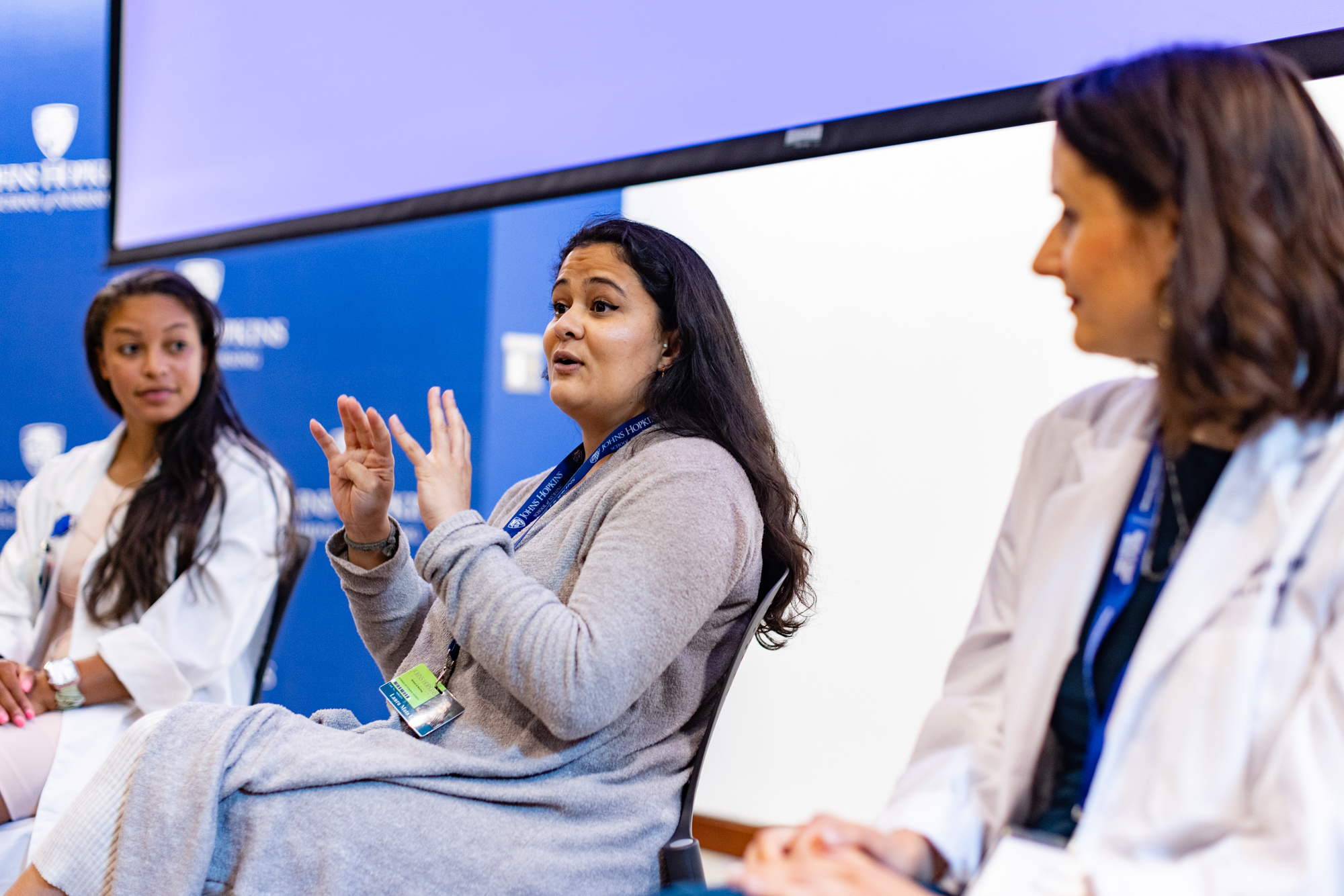In 2021, we can tentatively see a light at the end of the tunnel.
But the world, and then Americans, and in particular Black Americans and Black nurses… went through a lot last year. The Coronavirus pandemic emerged, disproportionately killing Black Americans, with an economic impact that also hurt Black Americans more—or, in the case of Black essential workers, forced the decision between financial survival and exposure (Black Americans are also more likely to be essential but low paid than White Americans). And then in May the murders of George Floyd, along with Breonna Taylor and Ahmaud Arbery, triggered a racial reckoning that manifested in a summer of quarantine filled with #BlackLivesMatter protests against police brutality.
Who’s Caring for Black Nurses? We Challenge Our Colleagues to be Allies
Black nurses were forever changed, need care, and expect their colleagues to be allies. Black Americans experience mental illness at rates similar to the general population, but only one in three Black Americans needing mental health services receives care. Meanwhile, the allostatic load (the physical and mental stress that results in chronic disease like anxiety, depression, hypertension, and more), grew amid the dual pandemics of COVID-19 and systemic racism.
We Need Nurses to Take on the Mental Health Crisis
More than 75 percent of all U.S. counties have a shortage of mental health professionals and almost all U.S. counties have an unmet need for psychiatrists. There is a deep demand for psychiatric mental health nurses. And we need diverse nurses who understand the unique stress of the populations they serve.
So read on and meet two Johns Hopkins School of Nursing Psychiatric Mental Health Nurse Practitioners: Patty Wilson, PhD, MSN, RN, PMHNP-BC and Tamar Rodney, PhD, RN, PMHNP-BC, CNE. Dr. Wilson is a faculty associate whose work focuses on improving the lives of those who have experienced trauma and creating community-based interventions that address social determinants of health. Dr. Rodney is an assistant professor who researches post-traumatic stress disorder (PTSD) in veterans. She is also coordinator of the Psychiatric Mental Health Nurse Practitioner Certificate.
How can institutions and colleagues support Black nurses?
From Dr. Wilson
Black nurses in the hospital setting must use their voice to advocate for their patients, and require the support of management to do so. As Black health care providers, many of us observe disparities in treatment. But learning to navigate how to intervene and ensure excellent patient care while managing workplace politics, that’s a challenging skill to learn. I was a labor and delivery nurse and frequently saw that providers were not listening to Black women. I ultimately left the hospital for community care to teach Black women to advocate for themselves.
From Dr. Rodney
For our colleagues, don’t assume everyone is okay. And for those of us working in a virtual environment, it’s even harder to see that someone is having a hard time. So reach out and check in with each other.
Many of our colleagues who want to be allies are afraid to say the wrong thing. It’s unfair that it falls on our black colleagues, but the responsibility is on us to open the dialogue and say, “I’d prefer you to say the wrong thing rather than nothing, because saying nothing feels like you don’t care.” And institutions need to create platforms for these kinds of conversations.
What are the unique or disproportionate challenges that come into play providing mental health care to Black American populations?
From Dr. Rodney
“Black” usually comes with something else. We are at higher risk for everything in large part because of negative social determinants of health—poverty, housing, health care access. To provide mental health care, we first have to chip away at different layers of immediate needs, and unfortunately mental health often falls low on the totem pole. And then we have to address the shame and stigma, because that is a factor too.
People of African descent are not a homogenous population. I am Jamaican and did the recruitment for my master’s in Jamaica while studying in the US; there one different challenge is in what is accepted as “mental health.” Should you only seek care for something severe like schizophrenia and deal with anxiety at home alone? A lot of people would think that anything below an acute crisis should be fixed with prayer.
From Dr. Wilson
Most of my patients have PTSD (Dr. Wilson serves low-income patients in Baltimore and surrounding counties on medical assistance). We’re used to understanding PTSD in the context of soldiers returning from war; in a community context that looks like people who have experienced neighborhood violence, have had loved ones murdered, have experienced childhood or sexual abuse, or grew up in families experiencing substance misuse. Its compounded because they’re dealing with mental health issues, trying to find housing, trying to care for family, navigating relationships, and then add COVID.
I often explore the concept of generational trauma with my patients. The same way we would take a patient’s family health history, we use a family tree to map out diabetes and heart disease, but also experiences of domestic violence, child abuse, poverty, and racism – including the traumatic experiences of our parents and grandparents’ generations. And the generational silence, the traumatic experiences we can sense but that older generations have locked away. Our parents may not have had the chance to heal, and raised us informed by their traumatic experiences. An overview of generational trauma, and the patient’s own life course helps patients identify patterns so they can connect the dots between their triggers, events, and outcomes, and work on “healing me to break the cycle for the next generation.”
I explore generational trauma with my patients. The same way we would take a patient’s family health history, include experiences of abuse.
Dr. Patty Wilson
What are the signs that nurses are out of their resilient zone? What should they do?
From Dr. Rodney
It can go two ways. First, you no longer care and emotionally are on autopilot. It’s just the nature of health care that you have to feel, and human nature is to feel and react, so you should step away when you get to that point. Or your coping behaviors are becoming a problem—you’re drinking more at the end of the day, smoking, or spending more. It’s a sign that you’re unable to cope with your daily stressors.
Anyone in mental health care should have their own therapist. You need someone to check in with because the things you hear can be difficult. Most institutions make mental health services available to employees to debrief, especially after hard sessions.
From Dr. Wilson
Signs could be insomnia, physical symptoms like back pain or muscle tension, ulcers and stomach pain, it’s your body responding to stress. Front line nurses have had to go, go, go nonstop, and often don’t realize what they’ve been through until they take a break and it hits them. That’s why mental health is so important. Many hospitals have support groups for nurses and front line staff to talk about how they feel because it can be overwhelming. Also, you should have a hobby that is completely unrelated to nursing. Just for fulfillment, balance, and life, you need to have something else as a positive outlet.
Now we are preparing for the mental health fallout of COVID, because when this is over we will have to deal with extreme loss collectively—the country and the world. We need more professionals available to provide those services. Many pre-licensure RN and psychiatric NP students at Johns Hopkins are taking the Psychological First Aid course.
What Nurses Need to Know: Recognize When You’re Out of Your Resilient Zone and Take Action
What do you like best about being a psychiatric mental health nurse practitioner?
From Dr. Wilson
It was my calling. It’s just a perfect fit and is full-circle for my career trajectory from bedside nurse, to community care, to mental health nurse practitioner. Nurse practitioners have a very holistic approach, so I meet people where they are, listen and make them feel comfortable, and involve them in their care plan. Some of the patients’ life stories are heavy. When I first started I worried about compassion fatigue, I thought “How will I deal with this as an empath?” That’s where having my own therapist and hobbies come in.
From Dr. Rodney
The very small changes are the best part. When something finally clicks, and the patient walks away with more hope. As a trauma nurse the results were instant—a patient’s temperature goes down, I know that I did what I was supposed to do. With mental health it takes a lot longer but when it happens its amazing. Because the journey is a lot longer for them.
What advice do you have for nurses and aspiring nurses who want to become psychiatric mental health nurses?
From Dr. Rodney
Mental health impacts every part of care, and if it’s not addressed the rest of care can fall apart, leading to poor health outcomes. I was encouraged to grow from trauma nursing, working with veteran patients who had experienced traumatic brain injury (TBI), to become a mental health nurse practitioner after working with so many patients whose mental health was a roadblock to physical recovery. Helping a patient learn to walk again… before we can get there we have to address some things.
In order for physical health to be successful, we must address mental health at the same time. Mental health is so critical, all-encompassing and varied—it isn’t all scary conditions. If more people understood that, more would probably take on the specialty.
Mental health impacts every part of care. In order for physical health to be successful, we must address mental health at the same time.
Dr. Tamar Rodney
From Dr. Wilson
RNs considering working in behavioral health should try out the field. You can volunteer in the community or get a job in mental health; the emergency department is great place to see a variety of experiences and work with people in acute crises.
Explore the SAMHSA Minority Fellowship Program; this helped me pay for school and is a great network. Fellows represent a wide variety of ethnicities, help to diversify the workforce of mental and behavioral health practitioners, understand the unique challenges of minority populations, and are culturally sensitive.
Read more:
- Who’s Caring for Black Nurses? We Challenge Our Colleagues to be Allies
- We Need Nurses to Take on the Mental Health Crisis
- What Nurses Need to Know: Recognize When You’re Out of Your Resilient Zone and Take Action
- The Power of WE
- Health Justice Begins with ACKNOWLEDGMENT
- Dr. Craig Pollack is Connecting Scholars Across Johns Hopkins for a Multidisciplinary Approach to Housing and Health
- Is Race Really a Risk Factor?
- I CANNOT REST

 The Returned Peace Corps Volunteer to Nurse Pipeline
The Returned Peace Corps Volunteer to Nurse Pipeline From Health at Home to ICU, Pediatric Nurse Practitioners Talk About the Care Continuum
From Health at Home to ICU, Pediatric Nurse Practitioners Talk About the Care Continuum ‘Helpful, Powerful, Kind’ Palliative Care
‘Helpful, Powerful, Kind’ Palliative Care A Shared Resilience
A Shared Resilience Episode 31: From Erasure to Empowerment
Episode 31: From Erasure to Empowerment






